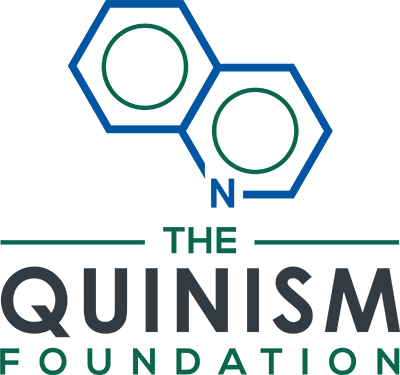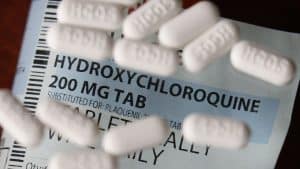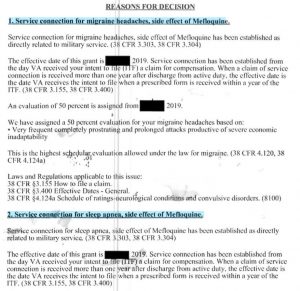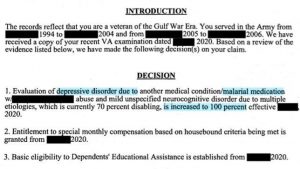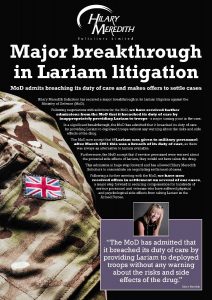COVID Has Highlighted the Lasting Dangers of Quinoline Drugs
After a remarkable year in which quinoline drugs including hydroxychloroquine, chloroquine, mefloquine, and tafenoquine were proposed for prevention and treatment of COVID-19, initial interest in these drugs has been increasingly replaced with awareness of their lasting neuropsychiatric dangers.
As recently reported, drug regulators at the European Medicines Agency (EMA) emphasized these dangers in a news release commenting on a recent pharmacovigilance review:
“In view of their use during the COVID-19 pandemic, EMA had reminded healthcare professionals of the risks of these medicines…. It is already known that chloroquine and hydroxychloroquine, even used in approved doses for authorised indications, can cause a wide spectrum of psychiatric disorders. Psychotic disorders and suicidal behaviour are listed in the product information of some chloroquine or hydroxychloroquine-containing medicines as rare side effects or side effects occurring at an unknown frequency.”
“The review confirmed that psychiatric disorders have occurred and may sometimes be serious, both in patients with and without prior mental health problems.”
Several publications have also emphasized the potential for chronic and lasting neuropsychiatric effects from these drugs. In a letter titled, Psychiatric Side Effects of Chloroquine, authors comment that “long-term psychiatric effects extending beyond the drug’s persistence in the body cannot be excluded.” In a report titled Psychiatric Disorders and Hydroxychloroquine for Coronavirus Disease 2019 (COVID-19), authors found a disproportionate risk of suicide among those prescribed hydroxychloroquine for coronavirus disease.
The VA Continues to Award Additional Mefloquine Ratings
The VA continues to award disability ratings for U.S. veterans suffering long-term effects from mefloquine. In a newsletter earlier this year, we highlighted that the VA had awarded a 100% rating to a post-9/11 veteran diagnosed with organic brain syndrome attributed to mefloquine. Since then, the VA has awarded a veteran a 50% rating for migraine headaches and a separate 50% rating for sleep apnea also attributed to the drug’s lasting effects.
In a another case, the VA has awarded a 100% rating for a depressive disorder attributed to mefloquine.
These ratings are made possible by the provision of expert medical opinion. The Quinism Foundation is working to expand access to such nexus letter and independent medical opinion services in support of mefloquine-related claims, and is hoping to begin to subsidize or charitably fund such services in the coming year for needy veterans. Your support of the foundation’s activities will help make this possible.
The foundation is proud to be listed as a registered charity in the PayPal Giving Fund, on Amazon Smile, and in the Network for Good’s donor-advised fund. You can also read more about the foundation’s charitable activities by reviewing our listing on Guidestar. The Quinism Foundation has also partnered with Vehicles For Charity to provide an easy-to-use, tax-deductible process to donate your vehicle.
Military Mefloquine Publications
Congratulations to Derek Bodner for publishing his commentary, PTSD v. Mefloquine Toxicity, in a recent edition of the Canadian Esprit de Corps magazine. Congratulations also to Peta Bathie for their recent scholarly publication, Military Safety: A Systems Perspective on Lariam, published in the RUSI Journal, the Publication of the Royal United Services Institute for Defense and Security Studies.
Mefloquine Litigation Update
Efforts at litigation against governments in Canada, Ireland, and the United Kingdom for their militaries’ use of mefloquine continue by several plaintiffs. In the United Kingdom, law firm Hilary Meredith recently announced offers of settlement for several of their cases.
In Memoriam: Maeve McKean

This year saw the untimely passing of Maeve McKean and her son in a tragic accident.Ms. McKean played a critical early role in raising awareness of the dangers of mefloquine while she was working for former U.S. Senator Dianne Feinstein (D-CA). A public health and human rights lawyer, and the granddaughter of Robert Kennedy and daughter of former Maryland Lieutenant Governor Kathleen Kennedy Townsend, McKean had taken the drug while overseas as a former Peace Corps Volunteer. Though not affected by the drug herself, she knew what it could do after watching it affect other Peace Corps Volunteers.
As The Quinism Foundation board member Bill Manofsky describes, “Maeve was the aid at Senator Feinstein’s office I first contacted when I was critically ill from mefloquine.” Manofsky credits Maeve’s behind-the-scenes work in getting the U.S. Army to temporarily stop use of the drug in Iraq in late 2003 in response to a letter from Feinstein’s office. In so doing, “She saved many from getting injured like I did,” said Manofsky.
Thank You!
As the year draws to an end, we would like to take moment to thank and acknowledge the efforts of Jeanne Lese. Jeanne was recruited by Sue Rose, after whom the foundation’s annual Sue Rose Memorial Lecture is named, to the original Lariam Action USA Team over a quarter-century ago in 1994, only years after the drug was first introduced to the U.S. market.
With Jeanne Lese on the West Coast and Sue Rose on the East Coast, they assisted many international travelers and Peace Corps volunteers affected by mefloquine seek proper medical attention, and they worked tirelessly to raise awareness of the drug’s dangers.
For years prior to the founding of The Quinism Foundation, Jeanne personally maintained a webpage which served as a clearing house for publications and press releases, and also provided information on how to deal with the chronic effects of mefloquine.
“My wife, Maeve [McKean], and Jeanne Lese and Sue Rose of Lariam Action USA were 100% responsible for my getting the help I needed. Without their help, I would have most likely succumbed to my injuries,” recounts foundation board member Bill Manofsky. “Together they saved many lives.” Congratulations, and thank you, Jeanne!
